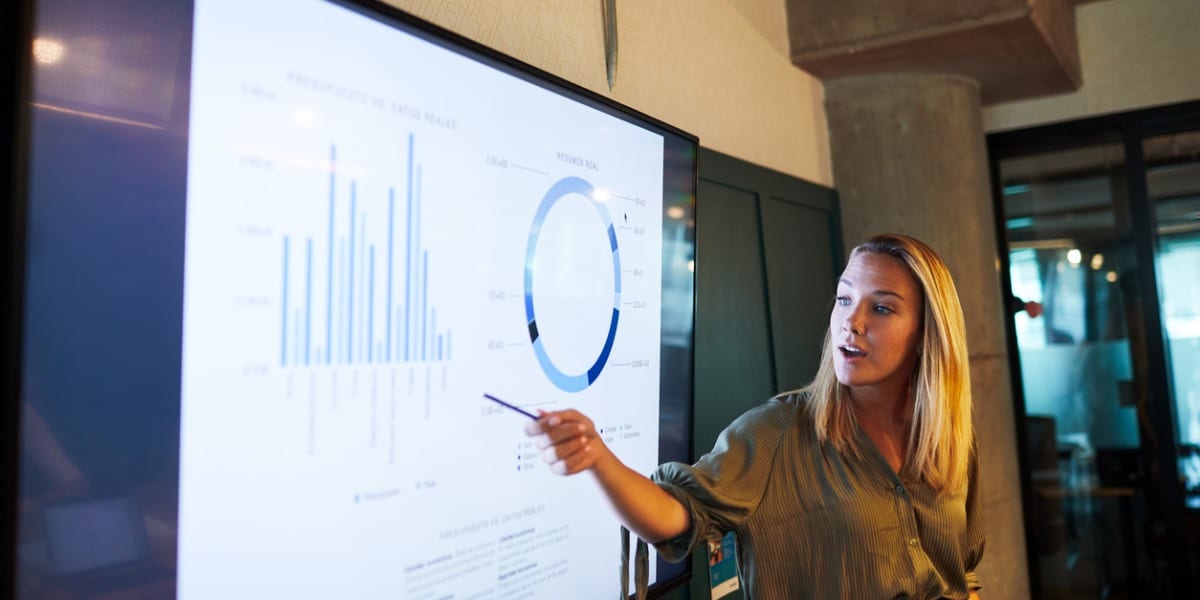After what feels like endless applications and constant CV tweaks, you’ve finally landed an interview to the graduate scheme you wanted to be part of. First of all: congratulations, it’s taken a lot of hard work, dedication and commitment to get to this position. But now, the pre-interview nerves are beginning to kick in and you’re not sure what to expect from this all-important discussion with your would-be employers.
A few butterflies in the stomach is perfectly normal. And while grad scheme interviews can be daunting, the good news is there’s plenty you can do to prepare for them beforehand to help give yourself the edge.
Here, we’ve created this in-depth guide to help you out, touching on everything from understanding the format of your interview and questions you can expect from the interview panel, to what to expect from an assessment day.
Read on for the rest of our extensive grad scheme interview preparation below…
Quick navigation
- Finding out the format of your graduate scheme interview
- What to expect from an assessment day
- Preparing the best answers to interview questions
- Tips for successful panel interviews
- How to deliver a presentation at your interview
Finding out the format of your graduate scheme interview
Many graduate schemes involve multi-stage interviews that take a range of different formats. Though each employer’s process will differ, here’s what to expect from the most common types:
Telephone interviews
The first stage of the graduate scheme interview process typically takes place over the phone, and it’s here where employers will screen a large number of candidates. And while the methodology of telephone interviews will vary, expect to be questioned on your CV, work history, and competency-based issues.
It pays to know your CV inside and out at this stage, as you’ll have to call upon specific skills and experiences to answer the competency-based questions which will need examples.

In preparation for your telephone interview, consider the following:
• Research the employer thoroughly, identifying where your role would fit into the organisation
• Revise your CV in detail so you can answer questions in a clear, confident manner
• Think about particular life experiences that may suit certain competency-based questions
• On the day, find a quiet area away from noise. You have to compensate for the lack of body language and non-verbal communication over the phone, so stand up to project your voice
Video interviews
Even before the pandemic forced many interviews to take place in front of laptops, video interviews have long been used in the graduate scheme interview process. Although they’re similar to in-person, face-to-face interviews, they differ in ways you should be aware of when preparing for them.
First of all, just because it’s taking place over Skype or Zoom, it doesn’t mean you should take it for granted. Being too relaxed or casual may reflect badly on you and end up costing you the job.
Additionally, there’s a slew of technical elements to consider on the day too. It’s crucial that you have a strong internet connection to minimise interference and drop out over the course of your discussion, for instance. While you’re preparing, keep the following pointers in mind:
• Maintain eye contact by looking into the camera rather than the screen of your laptop, desktop or phone
• Dress as you would for a face-to-face interview
• Find a quiet space that’s free from clutter
• Be mindful of your body language
For more information on how to ace video interviews, along with tips and advice from recruitment experts, check out our helpful guide here.

What happens next?
Success after your initial interviews will lead to the next stage: an assessment day, where you’ll be head-to-head with other graduate participants in a variety of roleplay exercises, leadership assessments and social situations.
What to expect from an assessment day
A regular feature of the graduate scheme recruitment process; assessment days (or centres) require a group of candidates to complete a series of exercises, tests and interviews designed to evaluate how suitable they are for graduate jobs within the organisation. Such a format allows you to better demonstrate a broader range of skills and competencies, as well as being a more effective method of selecting graduates when compared to interviews.
What exercises should you expect from an assessment day?
Designed to test skills and aptitudes suited to their own organisations, graduate employers come up with their own exercises. But the elements are broadly the same, and typically involve a combination of the below:
• Information session: Either a presentation about the business or an informal discussion with assessors
• Group ice-breaker exercise: Here you may be asked to introduce yourself or be required to discuss an issue related to the industry
• Aptitude and psychometric tests: Tests to provide an insight into your personality and cognitive abilities
• In-tray or e-tray exercise: A test of your ability to absorb information, prioritise, make decisions and communicate
• Group exercise: Typically a case study discussion involving an issue or project that’s relevant to the business or a group problem-solving exercise
• Presentation: Often part of the above task, you’ll be asked to present your conclusions as part of a group. However, you may also be asked to prepare an individual presentation in advance
• Written task: Sometimes taking the place of the presentation, you may have to write recommendations or conclusions to a case study exercise, or you may be set a writing task in the form of composing an email or business report
• Interview: Either one or more one-to-one or panel interviews. Your interviewers could be recruiters from the HR department, but are usually senior employees including your future line manager
• Social break: Here, use this free time to demonstrate your interpersonal skills and learn more about your prospective colleagues, the business and the candidates you’re up against
Preparing the best answers to interview questions
Candidates should get to grips with the “optimum answer” to every question they’re asked at interview. Aim for answers to be two minutes long. Any longer than three and you’ll end up rambling; shorter than a minute and your interviewer may think you’ve not prepared. To avoid this, use the acronym SAFW to come up with the best possible answers:
• S: make an opening Statement
• A: Amplify that statement
• F: provide a Few examples
• W: Wrap it up
The focus of your answer should be on providing examples. Here, you’ll demonstrate the concrete evidence laid out by your opening statement, and by providing specifics, the answer will be more meaningful than simply stating some mere generalities.
Be sure to draw on your experiences from university, employment and other areas of your life. But make sure they’re relevant and positive, and remember to come up with some questions to ask the interviewers themselves.
Tips for successful panel interviews
Part of your assessment day may involve one or more panel interviews. While the idea of being grilled by senior members of staff can seem daunting, there’s plenty you can do to make sure the pressure doesn’t get to you.
Everything you’ve learned to keep in mind at regular one-to-one interviews applies here, but remember these important panel-specific tips below too:
Research the panellists
Get in touch with your HR contact to see who will be on the panel. Usually, you’ll get a list of names, at which point you can start researching them on LinkedIn.
Take a look at each individual’s career history, professional achievements and current responsibilities. At the interview, show you’ve got to know their backgrounds by asking tailored questions about each panel member.
Answer concerns individually
Each panellist has their own agenda; view the hiring process from their perspective so you can more readily anticipate likely questions. If the HR manager wants to know how you’d fit into the team, it’s because they want you to talk about your soft skills.
Elsewhere, an IT manager may be interested in your technical abilities; be prepared to be asked more role-specific questions about your skillset.
Make introductions count
Don’t assume that everyone on the panel has met you before. Be sure to introduce yourself to each person; make eye contact, shake their hand and find out their name and role (even if you already know them). As well as a strong introduction, be sure to thank each panellist for their time.
Address the panel
Try not to focus all your attention to one person by directing your answers to them. When responding to a question, hold eye contact with the person doing the asking but, in your reply, direct your response to the entire group.
For more advice on how to prepare for panel interviews, check out our guide here.

How to deliver a presentation at your interview
As mentioned earlier, you may have been asked to prepare a presentation ahead of time to deliver on the day of your interview or assessment day. It might seem like a nerve-wracking prospect, but it’s good to look at it as an opportunity to show your communication skills and adaptability. Keep the following in mind during your preparation:
• Understand what’s being asked of you: go through the brief and know what’s being asked of you.
• Structure everything clearly: Make the beginning, middle and end obvious, weaving your own skills and abilities into the presentation throughout. You may also want to present things as a series of problems and solutions.
• Use notes as a guide: Keep your slides to brief bullet points, expanding on each piece of information in more detail using supplementary notes. Just make sure you aren’t using it as a script.
• Practice, practice, practice: Practice your presentation by yourself or in front of an audience as much as you can. If possible, record yourself so you can listen out for any areas you may want to improve on.
• Be mindful of your delivery: Dress professionally, speak clearly and try not to be too animated. Make regular eye contact and be sure to take a deep breath before beginning a new slide.
Click here for the latest news and features from SEFE Marketing & Trading or visit our homepage to find out about our latest career opportunities.
The views, opinions and positions expressed within this article are those of our third-party content providers alone and do not represent those of SEFE Marketing & Trading. The accuracy, completeness and validity of any statements made within this article are not guaranteed. SEFE Marketing & Trading accepts no liability for any errors, omissions or representations.








